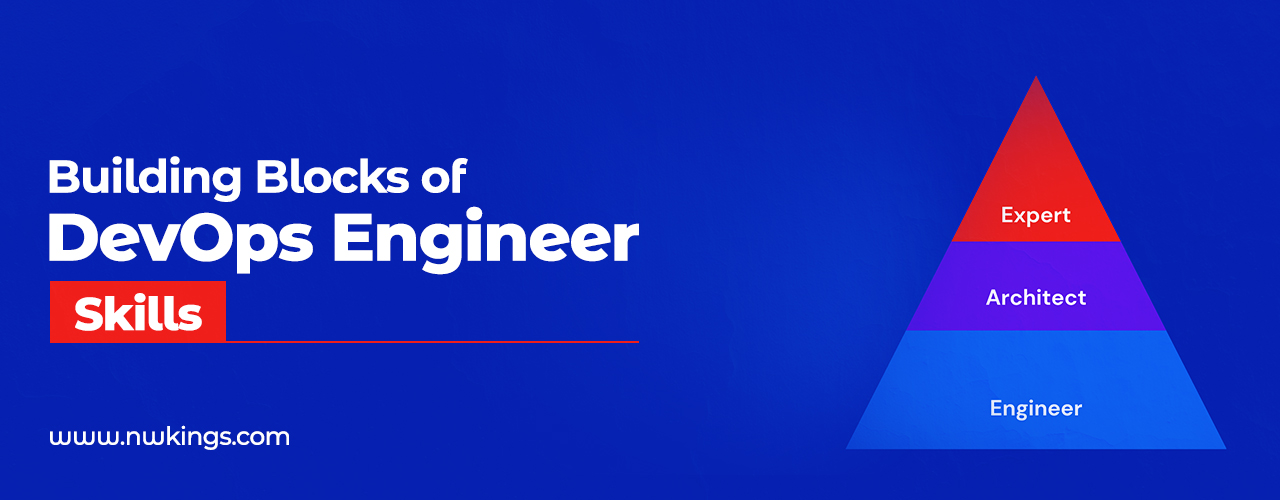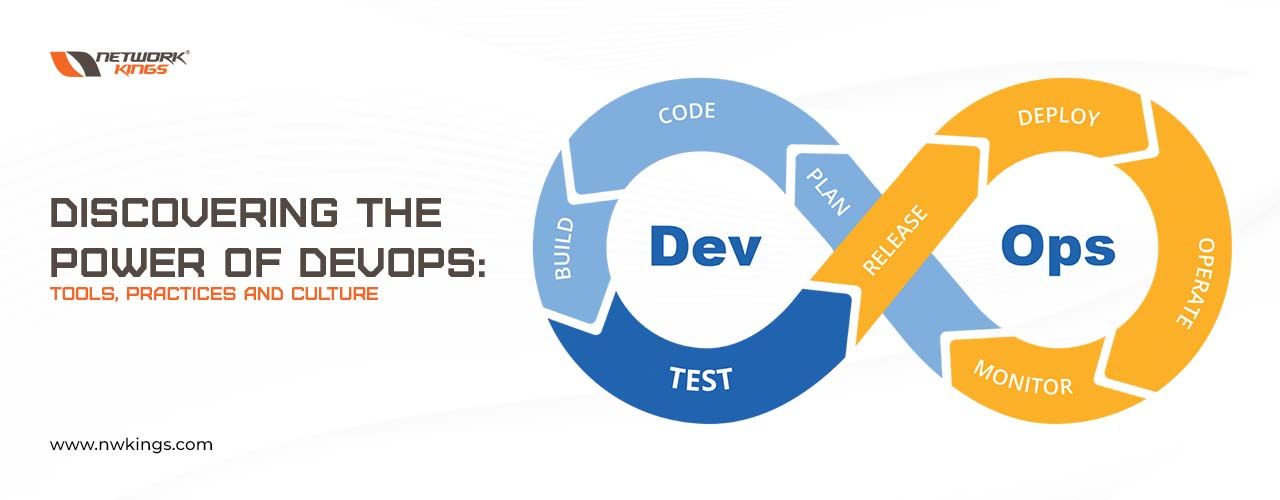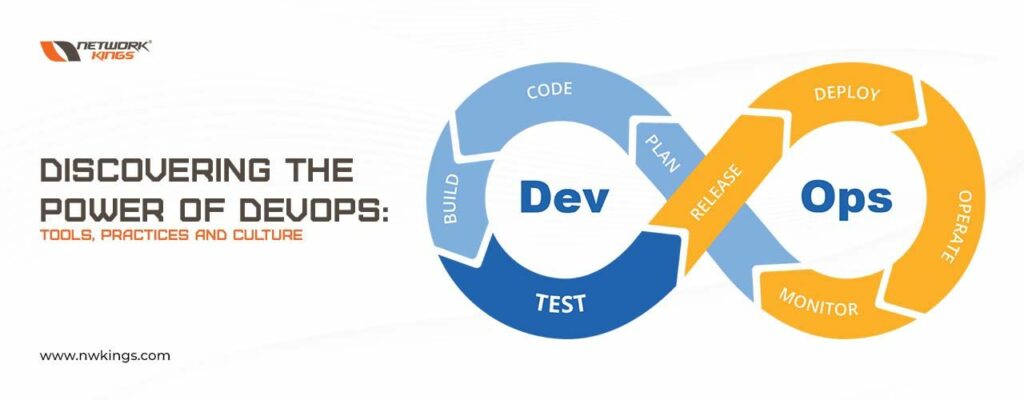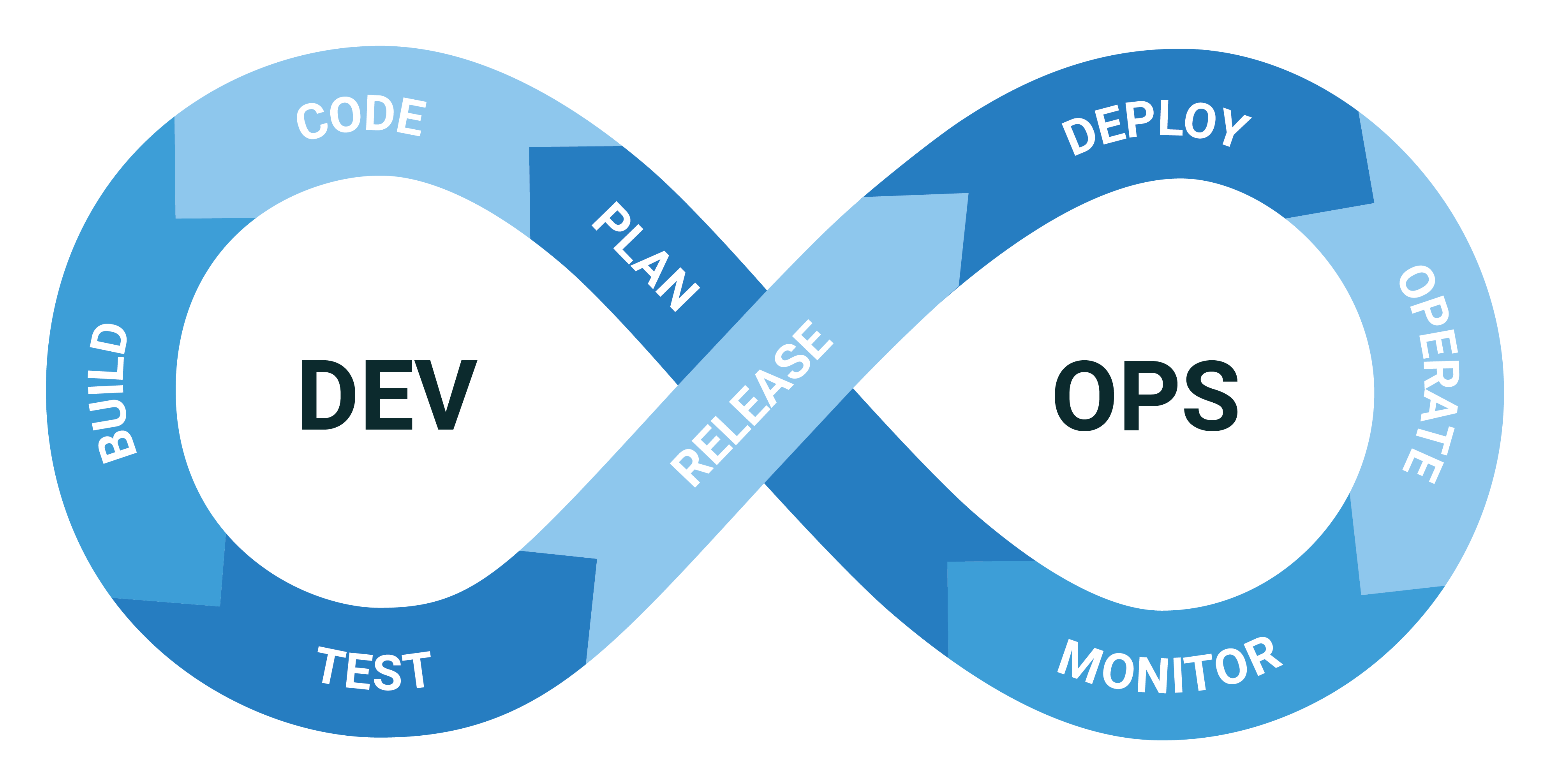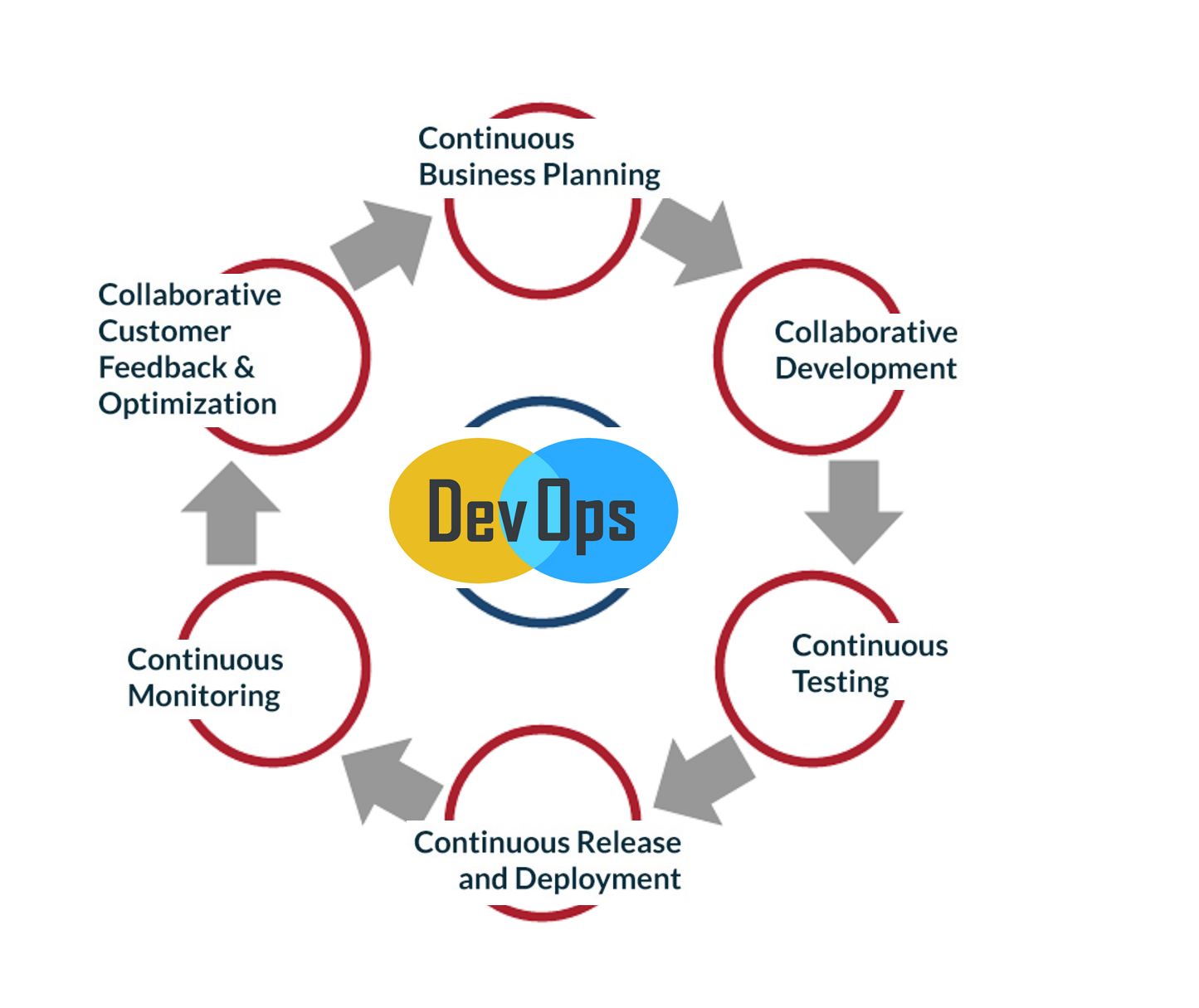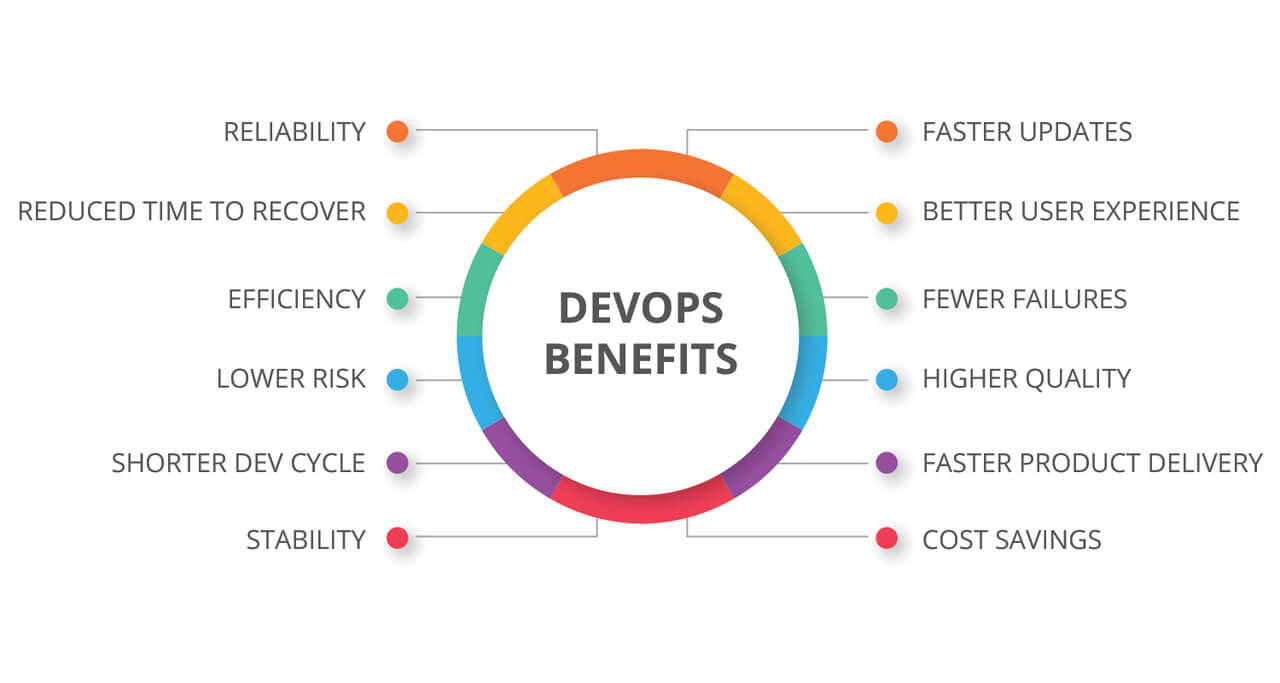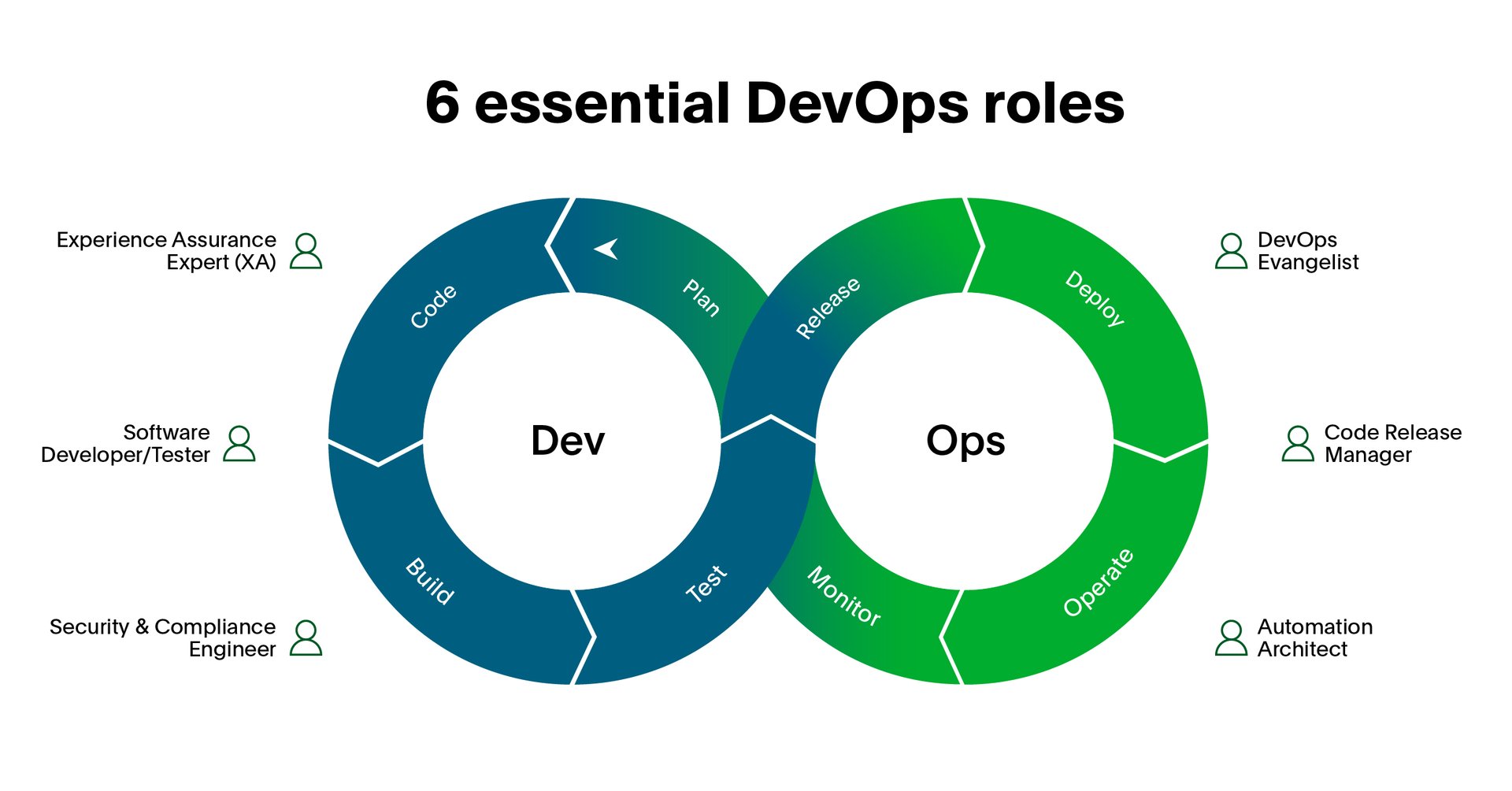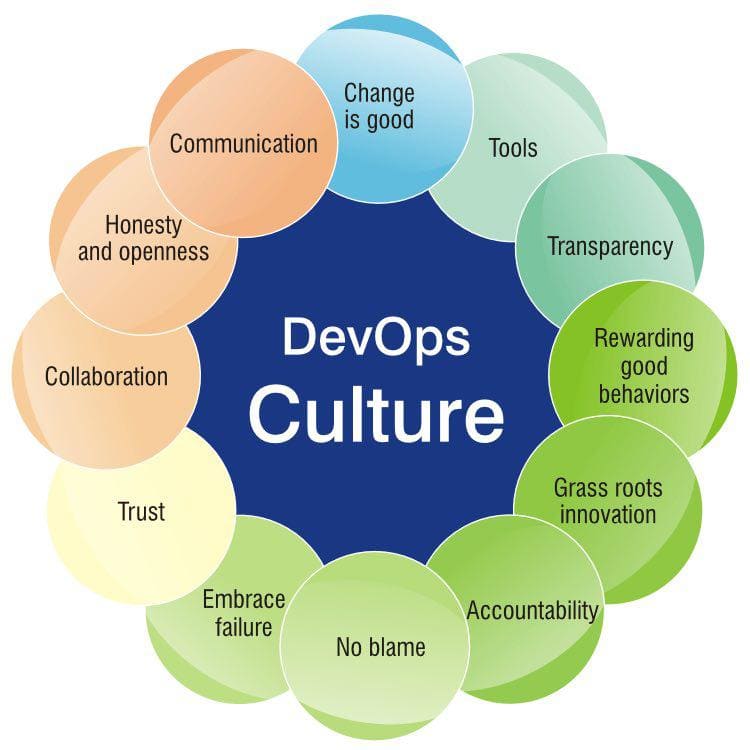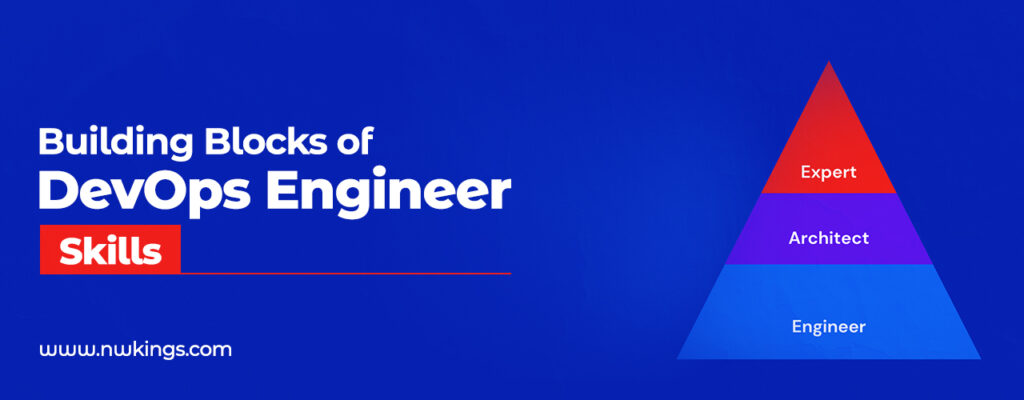
While advancing your skills in the IT world, you must have come across the buzzing term ‘DevOps engineer skills’. What is DevOps? Is it a technology or a concept?
To make it easy for you, DevOps is a software development process/concept that makes the whole procedure of application release handy. DevOps techniques are applied right from the product is built to its deployment. DevOps is referred to as a combination of development and operations teams.
You can make a hefty salary by becoming a DevOps Engineer. All you need is the correct set of DevOps Engineer skills! In this guide, we have discussed DevOps Engineer skills and tools that can make you stand out from the crowd.
It is essential to pursue DevOps certifications to enter the DevOps industry. If you’re already working in the IT industry as a Network Engineer, Systems Administrator, IT Specialist, Cloud Engineer, etc., it makes sense to upskill with DevOps.
Who is a DevOps engineer?
The first thing that pops up in our minds when the term DevOps engineer comes up is ‘automation’. However, the duties of a DevOps engineer are far more than that. He is a professional who can streamline the process of software development.
This is why he has knowledge about both software development and IT operations. He then uses automation to speed up the application release and product development process.
You can check out all the DevOps engineer skills required in order to become an in-demand DevOps engineer in the IT industry.
What is DevOps engineer skills?
Now that you know who is a DevOps engineer by understanding the definition of DevOps engineer mentioned above, you must be familiar with the DevOps engineer skills needed in the industry. We have discussed all the DevOps engineer skills set further in the blog. Make sure to check the guide till the end.
There is a huge importance of DevOps engineer skills that you need to understand to excel in the tech industry. It can be evident from the following pointers:
- A DevOps engineer plays a crucial role in the smooth operation of software development and IT processes.
- He bridges the gap between the development and operations teams by becoming a medium of communication between the two.
- He automates manual work and streamlines workflows for enhanced productivity of the teams.
- He makes continuous use of various monitoring tools and techniques to keep a check on the activities of the teams working under his supervision. This ensures quick problem resolution and efficient product/application delivery.
- He is the main innovator of the software development and IT operations teams as he deploys new methods and technologies for driving optimized business outcomes.
The above-mentioned pointers also give you an excellent brief overview of the role of DevOps engineer. Therefore, DevOps engineers stand as a foundation for the processes of application and software delivery. Without him, the whole process can collapse.
DevOps engineer skills needed: In-depth analysis
If you aspire to become a DevOps engineer, it is important to have a good understanding of core skills required as a DevOps engineer. A DevOps engineer manages software development and operations teams by using various tools such as Docker, Kubernetes, Jenkins, Git, etc.
Apart from that, there are many other soft skills that you must have as a DevOps engineer. This is why we have summarized all the skills as follows:
Technical proficiency:
As a DevOps engineer looks after the complete process of building, testing, deploying, operating and monitoring a product or application development, technical skills top the list of DevOps engineer skills list. The technical skills include the following:
- Performing automation tasks using Puppet, Chef and Ansible
- Coding and scripting using shell scripting and python
- Making use of cloud vendors such as AWS, Google Cloud Platform, Microsoft Azure, etc.
- Implement security skills such as protecting data, performing encryption, firewalls and intrusion detection systems.
- Troubleshoot and fix technical issues in case there is an error in the application development.
- Perform Continuous Integration (CI) that involves building and testing applications.
- Perform Continuous Deployment (CD) that includes releasing and deploying applications.
All these skills are discussed in detail later on in the guide.
Collaboration and communication:
A lot of times, there could be differences of opinion between the software development and IT operations teams. Therefore, it is the core duty of DevOps engineers to communicate and collaborate effectively between the teams.
He also communicates with the stakeholders and represents both the teams of development and operations. An individual with excellent soft skills can easily build a successful career in the DevOps field.
Problem-solving and analytical thinking:
As a DevOps engineer, you can come across various technical issues that need excellent problem-solving skills. A lot of times, you need to perform root-cause analysis and develop quick solutions for the problems.
At the same time, analytical skills aid DevOps engineers to analyze data, metrics and errors in software systems and operations. It is important for DevOps engineers to make data-driven decisions that can optimize software systems and infrastructure.
Continuous learning and adaptability:
A DevOps engineer has to proactively learn new technologies, tools and methodologies to improve workflows and optimize the productivity of the teams. Continuous learning and upskilling are crucial for a DevOps engineer to stay ahead of the curve.
Exploring the technical skills to become a skilled DevOps engineer:-
There are a defined set of DevOps engineer skills required to become a future-proof DevOps engineer in the industry. You must be fluent in working with certain tools and technologies to carry out technical processes such as troubleshooting, optimizing systems, etc.
The following technical skills are crucial to have as a DevOps engineer:
Infrastructure as Code (IaC):
It is the duty of a DevOps engineer to use Infrastructure as Code (IaC) resources to automate codes to design and deploy infrastructures instead of manually raising a ticket to run servers. This allows the existence of optimized automated servers and thus, makes the process of pushing applications to the cloud servers easy.
Automation and scripting:
Whenever a product or application is tested, code automation tools such as Selenium, etc. are used to look for code functionality, efficiency and user satisfaction. This is why it is important for a DevOps engineer to know how to automate tasks.
To automate the code-testing process, you must know how to code using scripting languages. These languages include Python, PHP, Ruby, Java, Golang, etc. The process of automation can bring quick outcomes and reduce manual loads on the teams.
Cloud technologies:
Since all business organizations have shifted their infrastructure to the cloud, a DevOps engineer must know how to set up and manage the cloud-based infrastructure that is important for building, testing, and deploying a product/application.
You often use cloud vendors such as Google Cloud Platform, Microsoft Azure, and Amazon Web Services, etc.
Containerization and orchestration:
These skills come in handy during the operation stages. These include efficient releasing and deploying applications as a package. To enable these tasks, various container orchestration tools are used such as Docker & Kubernetes, OpenShift, etc.
These tools can automate the process of scaling, configuring, provisioning, load-balancing, securing, and allocating resources in a highly-available environment.
Monitoring and logging:
You monitor systems to look for bottlenecks in them and take proactive steps to remove them. In this way, you can analyze systems in a better way and take measures to prevent such issues in the future.
By analyzing the recorded events, logs, and data regarding a system, you can monitor and troubleshoot systems to understand system behavior and run a suitable diagnosis accordingly.
Configuration management:
Configuration management tools are used to automate, design, manage and monitor various tasks that are otherwise performed manually. By making use of these tools, consistency is ensured in systems and it, therefore, increases team productivity.
Some of the popular configuration management tools include Chef and Puppet.
Version-controlled systems:
Oftentimes, the development team has to make changes in the current code for various operations such as application updation, product improvement or even launching a new product. Therefore, it is important to keep track of all the codes in one place.
A version-controlled tool such as Git is an excellent open-source storehouse of codes. You can always go back to the previous codes to get the bigger picture of what’s happening.
Continuous Integration and Deployment (CI/CD):
CI and CD are the most common phrases to hear in a DevOps environment. These are the best practices to ensure the efficient functioning of products and applications. The continuous integration includes the building and testing of codes in a single repository where all code changes are saved.
Continuous delivery refers to the operation tasks such as releasing and deploying the code changes that have been made by the software development team. This ensures enhanced collaboration, reduced workload, and better consistency of processes.
Highlighting the required soft skills as a DevOps engineer:
The following are the soft skills required as a DevOps engineer:
Collaboration and teamwork:
Working with cross-functional teams is the major duty of a DevOps engineer. It is essential to maintain effective communication and collaboration between software development and IT operations teams. You also need to communicate effectively with the stakeholders.
Projecting leadership qualities and teamwork are the most in-demand soft skills for a DevOps engineer.
Communication and documentation:
It can become unhandy to memorize all the codes, logs, data and events as a DevOps engineer. It is important to document all changes in one place for a DevOps engineer. Analyzing the data and keeping track of all events by documenting them is an excellent skill for a DevOps engineer to succeed.
Problem-solving and troubleshooting:
There could be existing bottlenecks and discrepancies between the software development and operations teams. This is where a DevOps engineer plays his vital role in resolving issues between the teams and troubleshooting existing errors in the code/operations.
These problems could be bugs in code or unstabilized servers.
Adaptability and flexibility:
DevOps is a modern technology that requires constant learning and upskilling. As a DevOps engineer, you must be committed to adapting to the usage of upcoming and novel CI/CD, automation, and version-control tools. You must also be flexible in a way that you’re ever ready to solve problems between cross-functional teams.
Time Management and prioritization:
DevOps engineers often have to deal with multiple projects at a time that involves continuous integration, checking for code errors, troubleshooting systems, deploying software updates, etc. Therefore, they need to be agile to work in an efficient way to meet strict deadlines.
They must be able to differentiate between urgent and generic day-to-day tasks.
How to Craft an effective DevOps engineer skills resume?
Your resume is an important tool that either makes or breaks it. It puts the first impression on a recruiter about you. Therefore, it is vital to craft your resume by following some industry standards and ensuring that you stand out from the crowd.
Here is an overview of a DevOps engineer resume:
You must put your best foot forward by showcasing certifications, qualifications, leadership qualities, internships, industry experience, and skills to potential employers. It should showcase your extraordinary skills in automation, version-controlled systems, working with cloud technologies, effective communication, and CI/CD.
Key sections to include in your resume:
Summary:
This is the first section of your resume that highlights a brief summary of your skills, years of experience and your area of expertise. This section must be tailored according to the job description that you’re applying to. Make sure to add all the required keywords.
Professional experience:
This section must include all the action verbs such as managed, collaborated, analyze, etc. You must avoid using pronouns such as ‘I’, etc. Follow the strategy of starting a bullet point with an action followed by the result yielded in numerical form.
For example, managed a team of 20 software developers to increase code efficiency by 20%.
Also, don’t forget to use a reverse chronological order in this section.
Technical skills:
This section should consist of all the keywords related to the tools and technologies required for the role of a particle DevOps engineer job opening. Make sure that you include all the tools and programming languages you’re fluent in.
For example,
- Version Control Systems: Git, SVN
- Continuous Integration/Continuous Deployment (CI/CD): Jenkins, Travis CI, Azure DevOps, GitLab CI/CD
- Configuration Management: Ansible, Chef, Puppet
- Monitoring and Logging: Prometheus, Grafana, Splunk, Datadog, ELK Stack (Elasticsearch, Logstash, Kibana)
- Collaboration and Communication: Slack, Jira, Confluence
- Infrastructure Provisioning: Terraform, CloudFormation
- Containerization and Orchestration: Docker, Kubernetes
Education and certifications:
This section must include your graduation and post-grad degrees and related certifications. You can showcase certifications such as AWS Certified DevOps Engineer or Kubernetes Administrator. You can also mention relevant courses and their completion certificates here.
Projects and achievements:
You cannot win an employer’s heart if you do not showcase how you practically implement the skills you have. Therefore, it is essential to include all the projects that you’ve previously worked on.
You can also mention any award, recognition, or contribution to open-source environments related to your area of interest.
What are the tips for showcasing the DevOps engineer skills on a resume?
Now that you know what sections to add to your resume, you can follow the below-mentioned tips to catch the eyes of a recruiter and also pass the Applicant Tracking Systems (ATS)!
Stuff keywords related to the job description:
You cannot use the same resume for applying to all the DevOps jobs. This is because every business organization uses different sets of tools for performing various tasks. You must add those tools and skills related to a specific job description.
Showcase your achievements through metrics:
It is important to add numbers and outcomes to your professional experience. You must add phrases like:
- Reduced deployment time
- Increased cost savings through automation
- Improved application performance
Highlight collaboration and communication skills:
It is of the utmost importance for a DevOps engineer to showcase qualities in your resume such as teamwork, leadership and effective communication.
Keep it to one page:
Don’t expand your resume to more than 2 pages if you have a lot of experience. It should be easy to read. Make sure that you include everything in bullet points.
Align the resume to ATS:
Your resume should contain all the relevant keywords related to the job description to crack the ATS! This will increase your chances of getting selected for the job role.
DevOps Engineer Skills and Tools: Enhancing Efficiency and Productivity
A DevOps engineer makes use of a large number of tools to perform day-to-day tasks including resolving issues, increasing productivity, automating production processes, enhancing collaboration between cross-functional teams, decreasing load and streamlining workflows, etc.
To perform all these tasks, various tools are used for enhancing productivity and efficiency of application/product development.
1. Integration and automation tools:
- Continuous Integration (CI) tools:
A lot of times there are changes made in the code during the building and testing phases. These changes need to be integrated quickly by using tools such as Jenkins, Travis CI, and CircleCI.
- Continuous Deployment (CD) tools:
These tools are helpful during the release and deployment processes for quick software updates, etc. By using tools such as Kubernetes, Docker, and AWS Elastic Beanstalk, etc., the feedback loop can be upgraded in quality.
- Configuration management tools:
These tools include Ansible, Chef, and Puppet. These tools enhance infrastructure management and automate application configurations by making use of Infrastructure as Code (IaC).
2. Monitoring and logging tools:
- Log management tools:
These include tools such as ELK Stack (Elasticsearch, Logstash, and Kibana), Splunk, and Graylog. These tools help in analyzing the system behavior by looking by making use of recorded logs for each event.
- Metrics and monitoring tools:
It is important to have a bigger picture of what’s happening. This is why tools such as Prometheus and Grafana collect the data and visualize key metrics to identify shortcomings in the system.
3. Collaboration and communication tools:
- Issue tracking and Project Management tools:
While dealing with multiple projects at a time, it is important to track the progress, tasks and bugs for managing all the work in one place. Tools such as Jira, Trello, etc. are helpful in tracking everything on a centralized platform.
- Chat and collaboration platforms:
The most popular platforms for chat and collaboration are Microsoft Teams and Slack. These tools make it easy for quick chat, collaborating on projects, and integrating and sharing files with various teams.
Junior DevOps engineer skills: Building a foundation for growth
If you’re just starting out in the DevOps industry, chances are that you’ll work as a junior DevOps engineer. A junior DevOps engineer works under a senior DevOps engineer and is proficient in all the DevOps mostly used tools and technologies such as CI/CD, code testing, infrastructure tools and efficient product/application delivery.
Essential skills for junior DevOps engineers:
The following are the vital skills for a junior DevOps engineer:
- Familiarity with scripting languages and automation
- Understanding of networking and security fundamentals
- Basic understanding of software development
- Familiarity with using cloud computing platforms
- Aware of CI/CD pipelines
- Knowledge about Infrastructure as Code (IaC)
Learning opportunities and resources for skill development:
The following tips can help you grow as a DevOps engineer, especially if you’re just starting out:
- Online courses: Enhance your skills using online courses and platforms. Network Kings is a good place to upskill yourself where you can learn directly from DevOps engineers.
- Open-source projects: Contribute to open-source projects such as on GitHub to enhance your visibility in the industry.
- Updated portfolio: Make portfolio projects to showcase your work.
- Attend meetups: Participate in meetups and industry events for better exposure in the industry. This will also keep you updated with the current industry standards.
Senior DevOps engineer skills: Advancing to leadership roles
If you’re planning to transition from a junior DevOps role to a senior one, it is important that you showcase your advanced infrastructure management, software development, collaboration, and automation skills.
Advanced skills and responsibilities:
The major skills and responsibilities of a senior DevOps engineer are as follows:
- Advanced cloud computing: You need to have advanced knowledge of cloud computing, especially in the context of cost optimization and enhanced productivity.
- Advanced automation and orchestration: You must be proficient with advanced automation and orchestration to build robust automation frameworks.
- System architecture and design: You must have a strong understanding of system architecture and design for long-term success and adaptability.
- Perform RCA: You must know how to perform root-cause analysis, perform incident management and troubleshoot systems.
- Prioritize security: It should be your priority to follow industry standards and look after all the security regulations.
Leading and mentoring junior DevOps engineers:
As a senior DevOps engineer, it is your duty to guide and mentor junior DevOps engineers, review their codes, and train them with the best industry practices. This is how you promote a culture of enhanced collaboration and communication in the industry.
By developing advanced DevOps skills, it becomes your responsibility to drive the whole team and become a guiding light for the software development and operations teams.
Conclusion
That’s all for the comprehensive give on DevOps engineer skills required! Entering a competitive industry like DevOps requires you to sharpen your technical as well as soft skills.
So far, you have learned that it is important to have an in-depth understanding of version-controlled systems, automation and scripting languages, Infrastructure as Code (IaC), Continuous Integration (CI)/Continous Deployment (CD), cloud computing platforms, monitoring and logging, troubleshooting, etc. At the same time, you must have strong collaboration and communication skills!
DevOps is one of the most modern IT tools and if you want to thrive in this industry, it is crucial to keep yourself updated with the upcoming tools and technologies. After all, continuous learning is the only way to stay ahead of the curve.

